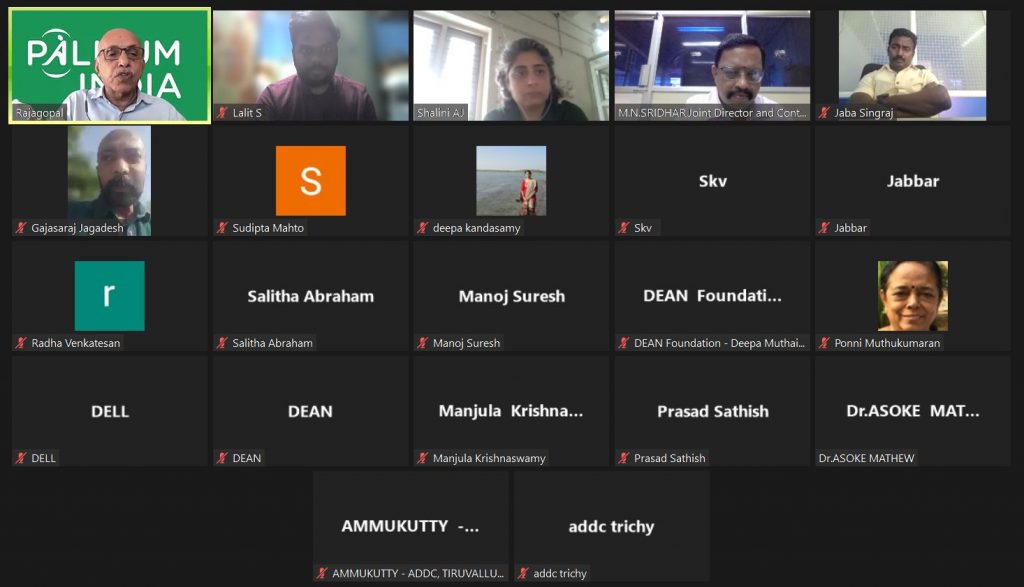Bridging the Gap: Addressing Opioid Availability in Tamil Nadu

In a concerted effort to address the critical issue of opioid availability for patients in Tamil Nadu, Pallium India and its partners in Tamil Nadu recently organized a workshop in collaboration with the Tamil Nadu State Drug Controller’s office. This workshop served as a platform for stakeholders to come together, understand the challenges, and explore potential solutions to ensure timely access to opioids for those in need.
The workshop, graced by the presence of Mr. M.N. Sridhar, Joint Commissioner of the State Drug Controller’s office, along with two regional drug inspectors from Tiruvalluvar and Tiruchirappalli, provided a valuable opportunity for fruitful discussions and collaboration.
Dr. M.R. Rajagopal, Director of Trivandrum Institute of Palliative Sciences (TIPS, a World Health Organization collaborating center for Training & Policy on Access to Pain Relief) and Chairman Emeritus of Pallium India, led the session, shedding light on the limitations posed by the 1985 Narcotic Drugs and Psychotropic Substances (NDPS) Act. This legislation, while well-intentioned, inadvertently created hurdles for physicians in providing opioids to patients suffering from pain and other ailments. The cumbersome rules and processes acted as blockers, impeding access to essential medication for those who needed it most.
Central to the discussion were the amendments made in the NDPS Act 2014, which aimed to streamline the procurement and stocking of opioids. These amendments provided a much-needed solution by allowing Registered Medical Institutions (RMIs) to stock and prescribe opioids with appropriate checks and balances in place. This simplified process was envisioned to alleviate the burdensome regulatory requirements, facilitating hassle-free access to opioids for patients.
Despite the progressive amendments, the challenge lies in the need for more awareness among the medical fraternity and drug administration regarding the revised regulations. As a result, the potential benefits of the amendments are yet to be fully realized, leaving many patients still grappling with inadequate access to pain relief.
In conclusion, the opioid availability workshop catalyzed meaningful dialogue and collaboration, laying the groundwork for concerted efforts to address this pressing issue. By leveraging the insights gained and forging partnerships, we can collectively work towards overcoming barriers and ensuring equitable access to opioids for all who need them.
(Report prepared by S.Lalit, Regional Facilitator- South, Pallium India.)






